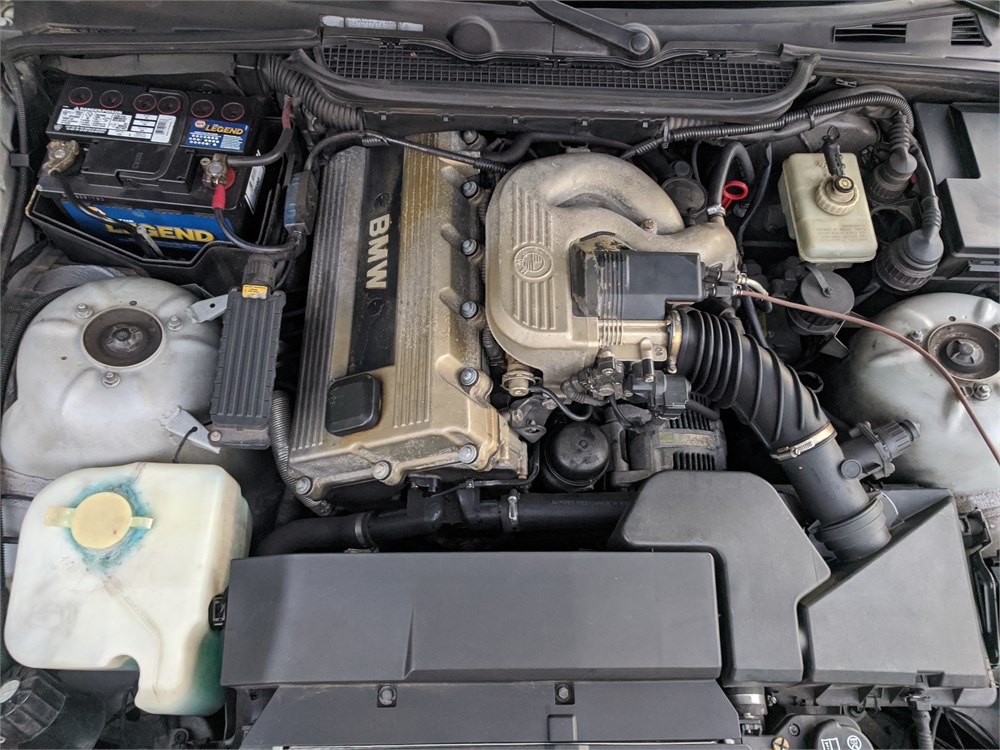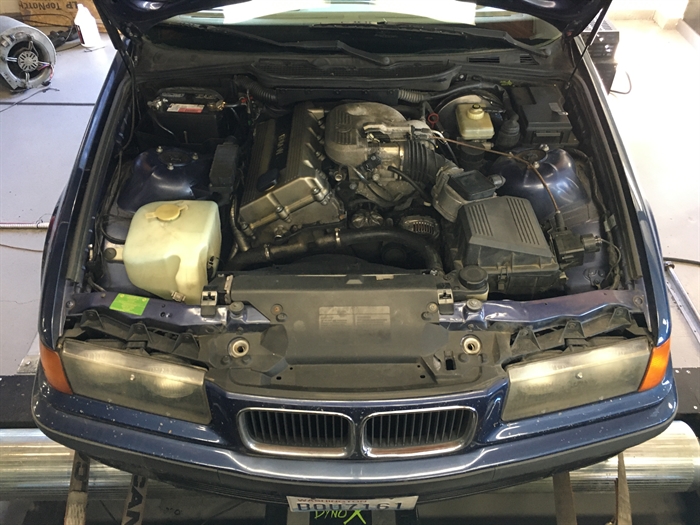Why the BMW 318ti Is a Top Selection for Automobile Enthusiasts
Why the BMW 318ti Is a Top Selection for Automobile Enthusiasts
Blog Article
Key Functions to Look for When Investing In an Engine for Automotive Applications
When thinking about the purchase of an engine for automotive applications, numerous key functions require mindful assessment to make sure ideal efficiency and capability. From power and efficiency capacities to fuel efficiency, adherence, and resilience to exhausts criteria, each aspect plays a vital role in determining the engine's viability for details automobile requirements. In addition, cost-effectiveness continues to be an essential aspect in the decision-making process, balancing quality with economic factors to consider. These functions jointly add to the overall effectiveness and integrity of the engine, affecting the driving experience and lasting fulfillment of the individual.
Power and Efficiency
When picking an automobile engine, purchasers prioritize power and efficiency to make sure optimal driving experience and effectiveness. A well-performing engine not only provides power effectively however also runs smoothly throughout various rate ranges and driving conditions.
Additionally, elements such as engine variation, crossbreed, and turbocharging innovations play considerable functions in enhancing both power and performance levels. Ultimately, selecting an engine that provides a powerful combination of power and performance makes sure a reliable and gratifying driving experience.
Gas Effectiveness
Optimizing gas performance is an extremely important consideration for customers when assessing vehicle engine alternatives. Modern engines with functions like direct gas shot, turbocharging, and variable shutoff timing can substantially improve gas efficiency by enhancing burning procedures and reducing energy loss.

Toughness and Integrity
Attaining resilient efficiency and reputable procedure is essential for customers assessing the resilience and dependability of auto engines. When taking into consideration an engine for automotive applications, toughness describes the engine's capacity to withstand wear, anxiety, and extreme operating conditions over an extended duration. Reliability, on the other hand, suggests that the engine can consistently do its intended function without unexpected breakdowns or failures.
Customers need to try to find engines constructed with premium materials and accurate engineering to ensure longevity. Elements such as pistons, bearings, and crankshafts must be sturdy to handle the engine's power result without early wear. Additionally, engines geared up with innovative air conditioning systems, reliable lubrication, and durable filtering devices often tend to display greater levels of dependability.
Normal upkeep and adherence to maker suggestions are also vital variables in protecting an useful reference engine's resilience and reliability. By following maintenance timetables, making use of advised fluids, and dealing with any kind of concerns quickly, customers can make best use of the life expectancy and efficiency of their vehicle engines. Inevitably, focusing on toughness and integrity in engine selection can bring about a much more enjoyable possession experience with fewer unforeseen interruptions.
Emissions Conformity
Ensuring conformity with emissions laws is a crucial element of assessing auto engines for ecologically mindful customers. With raising problems about air top quality and environmental impact, rigorous discharges standards have been put in place worldwide to minimize damaging toxins launched into the environment. When buying an engine for auto applications, it is important to consider its discharges conformity to decrease the carbon impact and stick to lawful needs.
Modern engines are furnished with innovative exhaust control modern technologies such as catalytic converters, exhaust gas recirculation (EGR) systems, and selective catalytic decrease (SCR) to decrease unsafe exhaust gases like nitrogen oxides (NOx), carbon monoxide (CARBON MONOXIDE), and hydrocarbons (HC) These systems play a critical duty in making certain that the engine meets the specified emissions requirements and runs within allowable limitations.

Cost-effectiveness
When considering automobile engine acquisitions, examining cost-effectiveness is paramount for customers seeking both performance and worth. It encompasses the overall expenditures associated to maintenance, fuel usage, and possible repair work over the engine's life expectancy.
Engines that are created to optimize gas economy can lead to considerable cost savings over time, especially for people who drive often or over long ranges. bmw 318ti. Furthermore, considering the accessibility and price of extra components and maintenance can add directory to the total cost-effectiveness of an engine.

Final Thought
In final thought, when acquiring an engine for vehicle applications, it is essential to take into consideration key features such as power and performance, gas longevity, effectiveness and integrity, emissions compliance, and cost-effectiveness. These elements are essential in ensuring that the engine meets the demands of the vehicle and runs efficiently in different driving problems - bmw 318ti. Making a notified decision based upon these requirements will inevitably cause a effective and effective automobile engine acquisition
From power and performance capabilities to fuel toughness, adherence, and effectiveness to exhausts standards, each facet plays a crucial duty in identifying the engine's viability for details auto demands. Engines made to run on alternate fuels such as electrical power, crossbreed systems, or biofuels can supply improved gas economic climate and lower emissions contrasted to standard gas or diesel engines. Customers must carefully think about the fuel performance ratings and modern technologies incorporated right into vehicle engines to make informed buying choices that line up with their priorities for price savings and sustainability.
When thinking about an engine for vehicle applications, resilience refers to the engine's ability to endure wear, stress and anxiety, and severe operating conditions over an extensive period.In final thought, when purchasing an engine for automobile applications, it is important to consider vital attributes such as power and performance, fuel resilience, performance and integrity, discharges conformity, and cost-effectiveness.
Report this page